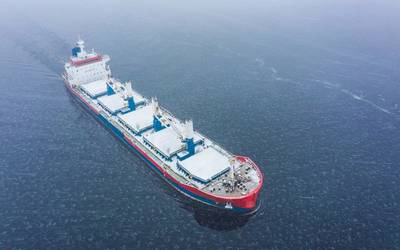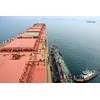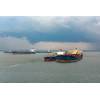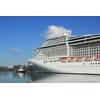IMO Adopts Ban on Heavy Fuel Oil Use by Ships in Arctic
The United Nations shipping agency on Thursday adopted a ban on the use of heavy fuel oil in the Arctic region while green groups said the regulations contained loopholes which will allow many vessels to keep sailing without enough regulatory control.
Antarctic waters are protected by stringent regulations, including a ban on heavy oil fuel (HFO) adopted in 2011, even though no cargo moves through the turbulent southern waters. For the Arctic, the rules have been looser.
In a virtual session of its Marine Environment Protection Committee (MEPC) the UN's International Maritime Organization (IMO) approved a ban on the use of HFO and its carriage for use by ships in Arctic waters after July 1, 2024.
A series of exemptions and waivers would mean a complete HFO ban would only come into effect in mid-2029, which campaigners the Clean Arctic Alliance said would amount to "endorsing continued arctic pollution".
The Arctic is warming at a faster rate than the rest of the planet.
Environmentalists say HFO produces higher emissions of harmful pollutants, including sulphur oxide, nitrogen oxides, and black carbon. In addition, a possible oil spill involving HFO from a ship could have a devastating impact on the Arctic's ecosystem.
The MEPC - which ran from June 10-17 - ran out of time and deferred work on black carbon emissions in the Arctic to the next scheduled session in November.
"Black carbon in the Arctic was to be discussed at this meeting, but now has been deferred to MEPC 77, more time lost, more damage done," Mellisa Johnson, with green group Pacific Environment, told the MEPC.
"None of the actions set forth by the IMO will provide any relief to the Arctic this decade, and without help this decade, the Arctic may be lost."
(Reporting by Jonathan Saul; editing by Jonathan Oatis)












